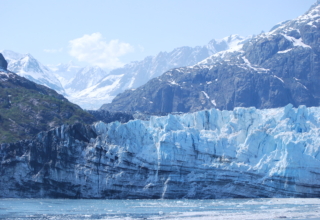
Damasio clearly believes that our feelings play a major role in the constructive process and in the determination of actions we take as a function of this construction. Reinforced by our powerful somatic substratum (the ongoing signally of our body to our mind), feelings inform our mind “of the state of life within the organism to which that mind belongs.” (Damasio, 2021, p. 96) Moreover, according to Damasio, “feelings give that mind an incentive to act according to the positive or negative signal of their messages.” (Damasio, 2021, p. 96) An important point is being made by Damasio that relates directly to the nature of effective expertise: “feelings help us introduce not only quantitative measures (numbers) but also qualitative measures into our assessments. These multi-source measures tell us how we are doing and what the implications are of the entities out in the world that we encounter.” (Damasio, 2021, p.53).
The Feeling of Commitment
It is especially the case that feelings play a major role in not only determining the actions to be taken in our world, but also in assessing the outcomes of these actions. This is where commitment in the midst of relativism enters the picture. I expect that Damasio would suggest our movement to commitment from the more thought-based stance of relativism is laced with feelings. I would also expect that Damasio would urge experts to assemble both qualitative and quantitative information in the domain of their expertise and communicate their own findings (assembled images) and proposed actions (linking of feelings and knowing) in a manner that touches on both the head and heart.
Damasio offers a quite detained and often nuanced presentation regarding consciousness. Much of what he offers is not directly related to the substance of the current essay. However, there are several major points related to the nature of consciousness that do further our exploration of ways in which we live and learn in the cave—and specifically ways in which we feel about making a commitment in the midst of relativism. First, it is important to note that Damasio’s consciousness has to do with Ownership. In the midst of being conscious we become fully aware of our being (Damasio’s first evolutionary stage) and our “owner-mind.” (Damasio, 2021, p. p. 137) Damasio asks a question that has eluded many philosopher and psychologist: “what does it mean to say “I am conscious”? He (Damasio, 2021, p. 128) offers the following answer:
At the simplest level imaginable, it means to say that my mind, at the particular moment in which I describe myself as conscious, is in possession of knowledge that spontaneously identifies me as its proprietor. Foundationally, the knowledge concerns myself in varied ways: (a) my body, about which I am continuously informed in greater or lesser detail via feeling, (b) along with facts that I recall from memory and that may pertain (or not) to the perceptual moment and are also part and parcel of myself.
Damasio (2021, p. 128) offers a guest list to this event of consciousness:
Download Article 1K ClubThe scale of the knowledge fest that renders minds conscious varies depending on how many honorable guests attend, but certain guests are not only honored but obligatory. Let me identify them: first; some knowledge about the current operations of my body; second, some knowledge as retrieved · from memory, about who I am at the moment and about who I have been, recently and in the long ago past.
















